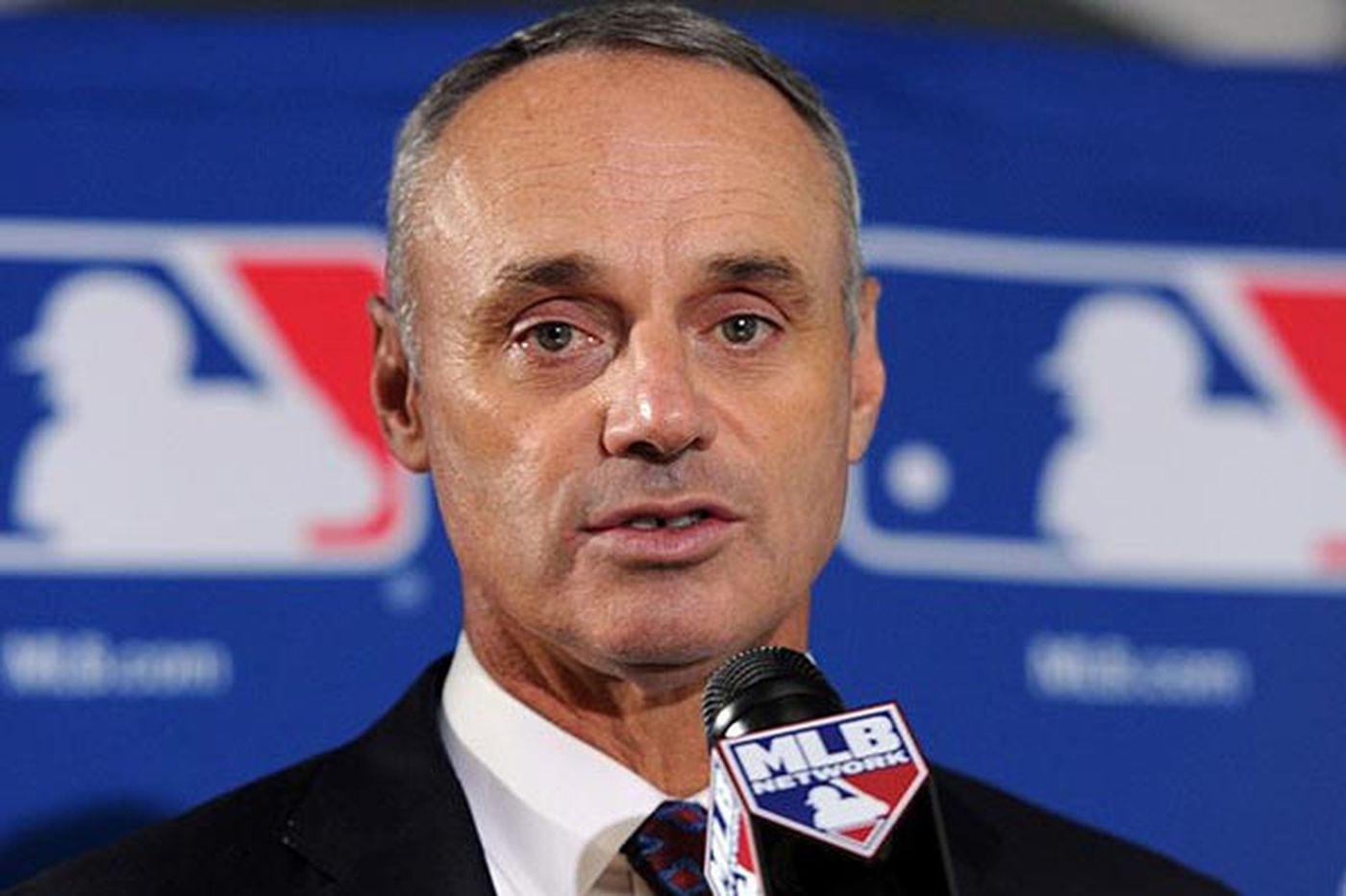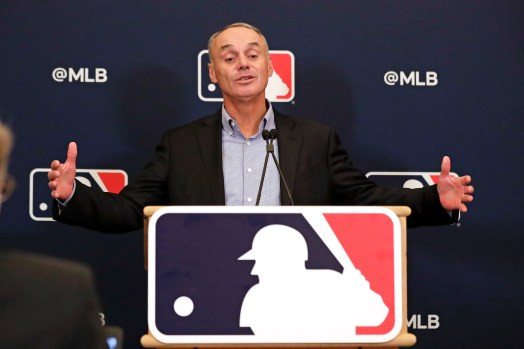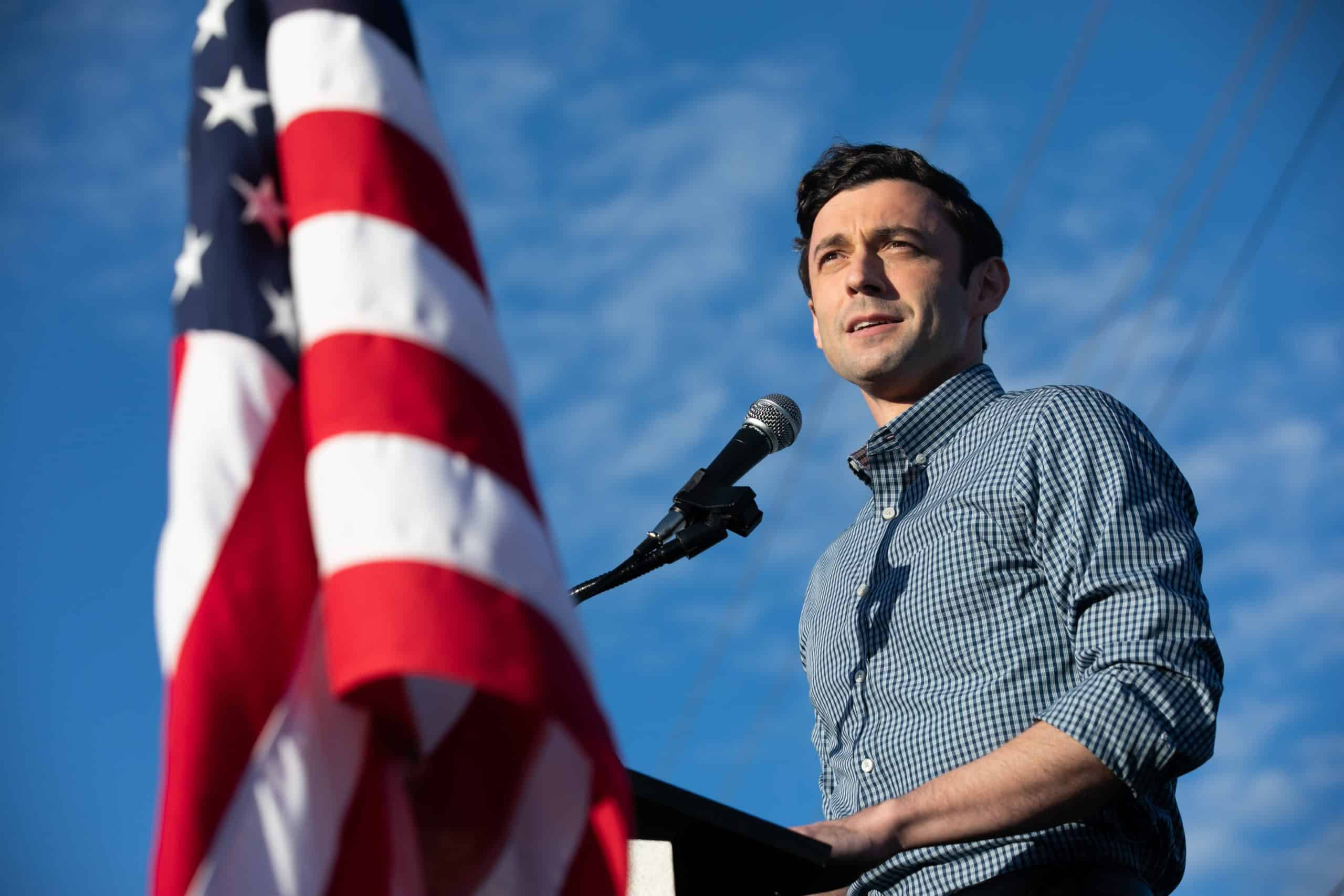LOS ANGELES — The star-studded 2024 World Series between the Yankees and Dodgers, already generating historic results, is both a culmination and acceleration of numerous MLB business initiatives, league commissioner Rob Manfred said Saturday.
Speaking before Game 2 of the World Series at Dodger Stadium, Manfred said current indicators such as initially robust domestic viewership and strong ticket demand are among the fruits of several years of effort by the league and its various partners.
“It’s about the focus on the players, trying to grow the game into a more national product, [achieving] international growth, and [engaging] young people,” Manfred said in response to a Front Office Sports question. “When you get a stage like this, it’s an opportunity to step forward.”
Of course, there is an element of luck, too, and MLB has had a particularly strong dose of it this year. That good fortune includes getting the Fall Classic matchup between the Dodgers and Yankees, superstars such as Shohei Ohtani and Aaron Judge having historic years on the field and then appearing in this event, and Game 1 of the World Series on Friday ending with a dramatic walk-off, extra-innings grand slam by Dodgers first baseman Freddie Freeman.
Still, the commissioner said those factors provide a further base of support from which to advance its fan development efforts.
“I really see this matchup as an opportunity to amplify everything we’ve been working on,” he said.
MLB's International Growth
On other matters addressed by Manfred:
After taking questions from reporters, Manfred spoke briefly with Disney CEO Bob Iger, attending Game 2 at Dodger Stadium. Disney’s ESPN is a major MLB rights holder, but has an opt-out in its contract after the 2025 season.
Manfred also spoke about the importance of growing the sport's international presence. He noted that the most-watched MLB postseason game in Japan all-time was earlier this postseason, in the Dodgers’ decisive Game 5 win over the San Diego Padres in the National League Division Series. More estimated average viewers watched the game in Japan on TV, 12.9 million, than in the U.S. One of the two starting pitchers from that game, Yoshinobu Yamamoto of the Dodgers, is set to pitch Game 2 of the World Series.
“I think our ratings in Japan are going to be awesome,” Manfred said. “That’s an important market where you can make real money.”
MLB's Focus on Young Fans
Earlier in the postseason, MLB took out 113 billboard ads around Tokyo, a nod to the combined number of home runs and stolen bases Ohtani reached. The league has also been actively working to engage younger fans via social media and music. They have worked with El Alfa, a Dominican music artist, to create a song about Soto heading into the playoffs. This is part of a larger effort to meet fans where they are. MLB has historically lagged behind the NBA and NFL in social media, but Manfred is determined to change that.
A New Economic Model
Manfred also addressed the league's evolving local media predicament. MLB is the most federalized of the Big Four sports leagues. While it has packages with ESPN, Amazon, Roku, and Apple, it has been harder for the league to collectively exploit the media value of its product, as has become the modus operandi in the NBA and NFL. This is due to the importance of local fandoms, the long schedule of the sport, and the longtime reliable revenue from local cable. The implosion of the regional sports network business has further complicated things. MLB has had to take back the rights to six of its teams in the past two seasons.
Looking Toward the Future
Despite the challenges, Manfred is optimistic about the future of MLB. He believes that the league's focus on the players, international growth, and young fans will continue to pay off. He also believes that the current World Series will help to accelerate those efforts.
“The way I look at this World Series is that we’ve had two really good years in a row,” Manfred said. “Attendance is up, our ratings are good, our demographics — both ticket purchasing and broadcast audience — are really improving. … And I think that this World Series provides an opportunity to appeal to a national audience because of the matchup and the players involved.”
The next few years will be crucial for MLB as it navigates the ever-changing media landscape. The league's success will depend on its ability to command attention across the country and capture new audiences.


















